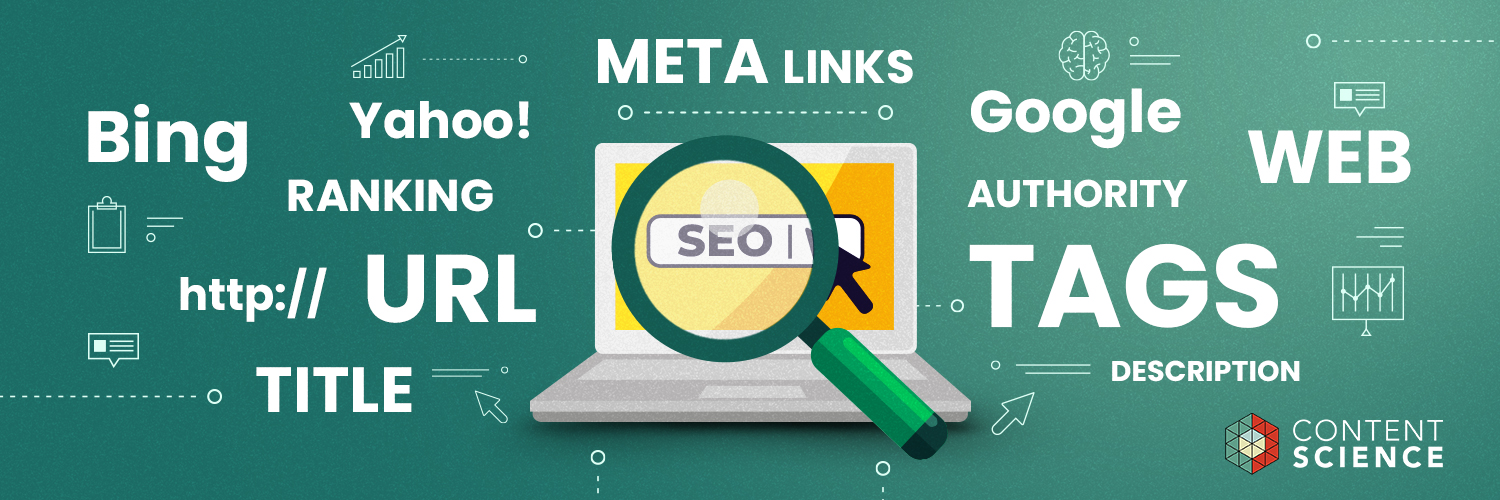
We all understand the basic concept behind search engine optimization (SEO).
The ‘name of the game’ is to deliberately deploy a set of optimization tactics for your website so that it becomes as visible as possible to search engines and ranks as highly as possible for particular keywords. And in 2023, SEO remains a crucial part of any digital marketing strategy; no matter which part of the customer experience you examine.
From supporting lead generation to customer success, SEO has become a mainstay tactic when it comes to helping organizations connect with their audiences.
What’s more, brands are continuing to lean on the SEO practice because of its cost-effective nature in an era where many marketing budgets continue to be severely squeezed.
The pay off for investing time and effort in SEO? Put simply, your organization gains a better chance of attracting more website visitors; visitors who, in turn, may go on to convert into customers, clients, or audiences.
But… adapting your content for search engine optimization (SEO) can sometimes feel like going into battle. Everyone wants their content to rank highly, and be the first result users see. So, understanding the basics of SEO and building up your practical knowledge is the important first step in being able to properly ‘wrangle’ those SEO best practices.
We’ve compiled a list of what we believe to be the most common, most important SEO terms — all of which relate to SEO content best practices.
Handy List of Key SEO Terms
Alt Text – Describes the appearance or function of an image on a page. It can be read aloud by screen readers, displayed if an image fails to load, and is routinely indexed by search engines.
Backlink – These are links from outside domains which point to pages on your domain. They can serve as a signal to search engines that your content is high quality and worth linking to.
Tip: Backlinks are sometimes also referred to as ‘external links’.
Bounce Rate – The percentage of visitors to your site that leave after viewing only one page.
Canonical Tag – A tag that is added to a site page to tell search engines that the page contains the original version of that content, and that any others on internet are duplicates.
Crawler – A program used by search engines (like Google) to collect information on websites so that they can then accurately index them.
Tip: Crawlers are sometimes also referred to as ‘spiders’.
Domain Authority – A ranking used by SEO tools as an indicator of how likely a website is to rank in search engine result pages (SERPs) compared to competitors.
Dwell Time – The amount of time a user spends on a web page before navigating back to the SERP.
Featured Snippets – Highlighted excerpts of text that appear at the top of Google SERPs to provide a quick answer.
H1 Tag – This is the HTML tag that indicates a title on a web page. It’s typically the most prominent text on the page, and helps search engines understand what the page is about.
Tip: You should be using only one H1 tag per page.
HTML – This is the name of the code from your website that search engines are able to crawl and ‘read’.
Tip: Try to keep your website’s HTML code as ‘tidy’ as possible so that search engines can read your site accurately, easily, and often.
Indexing – The process by which search engines store and organize content on your site that they find during the crawling process.
Keywords – The words and phrases searchers use to find the content they want or need. Using relevant keywords and phrases in your web content and meta data elements will increase the chances of people finding your site via a search engine query.
Link Building – The practice of gaining new inbound backlinks which, in turn, improve your SEO standing.
Link Text – Clickable text that takes a user to a different web page, either within, or outside of your site.
Link ‘Juice’ – This term refers to the extra ‘domain authority’ a website can gain when it receives a backlink from a ‘high authority’ website.
Tip: Gaining some exposure for your content through digital PR is a common way to gain valuable link juice!
Long Tail Keywords – These are user queries which are more specific in nature and include three words or more.
Tip: Using tools like Answer The Public can give you quick insights into the kind of long tail keywords users are typing into search engines (relating to a particular topic or theme).
Metadata – This is data that describes the unseen HTML elements which communicate website information to search engines.
Meta Descriptions – The information about your page that appears in the search engine results below the title and URL. It influences whether a user clicks on the link to your page or not.
Page Title – The title of your page that appears in the title bar of the browser as well as search results above the URL and meta description. It influences whether a user clicks on the link to your page or not.
Query – These are the keywords or keyword phrases a user types into a search engine to conduct a search.
Ranking – Dictates how search results are ordered. Top-ranked results are identified by search engines as those that are most relevant to a user’s search query.
Robots.txt – This is a text file which indicates which areas are accessible and which search engines should ignore when they’re crawling your website.
Search Intent – The reason/s as to why a user may conduct a search.
Search Volume – The total number of instances where a keyword is searched in a specific period.
SERP – This stands for ‘Search Engine Results Page’, and is the page that a search engine returns after a user submits a search query.
SERP Features – Any result on a Google search engine page that isn’t a traditional organic search result. This includes review star ratings, images, map excerpts, videos, and site links.
Structured Data – A data set (of any kind) which is tagged and organized in such a way that it actively aids search engines in understanding that data/information accurately, and in the right context.
Topic Clusters – Groups of related content that collectively cover a broad subject area. They provide contextual support for pages within the group, and create a strong internal linking framework which can enhance your website’s SEO.
Putting SEO Terms Into Practice
Knowing the key terms above is only the first step in enabling you to successfully use SEO in a best practice manner.
Talk to any SEO specialist, and they’ll tell you that the discipline of SEO never stands still. It is a constantly evolving discipline affected heavily by factors such as:
- Technical changes search engine companies make to how their software works
- Shifting user search behaviours
- Evolving website standards, and more recently;
- Emerging AI-related technologies that can plug into our content discovery, creation, and publishing processes at various points.
All of this means that continuing to educate and upskill yourself on the most up-to-date SEO tactics and practices will be essential to maintain the strength of your website’s SEO.
Events, Resources, + More
5 Secrets of Content Ops Success: Webinar
Learn how the most successful organizations scale and mature content operations. Based on our research with 700+ content leaders and professionals.
The Ultimate Guide to End-to-End Content
Discover why + how an end-to-end approach is critical in the age of AI with this comprehensive white paper.
The Content Advantage Book
Learn more about the much-anticipated third edition of the highly rated book by Colleen Jones. Preorder the electronic version.
20 Signs of a Content Problem in a High-Stakes Initiative
Use this white paper to diagnose the problem so you can achieve the right solution faster.
Workshop: Are You Ready for AI?
Is your organization really ready for AI at scale? Let the Content Science team guide your leaders through assessing 4 areas of readiness.
Upskill with Content Science Academy
Training for modern content roles through on-demand certifications + courses or live workshops.


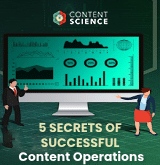
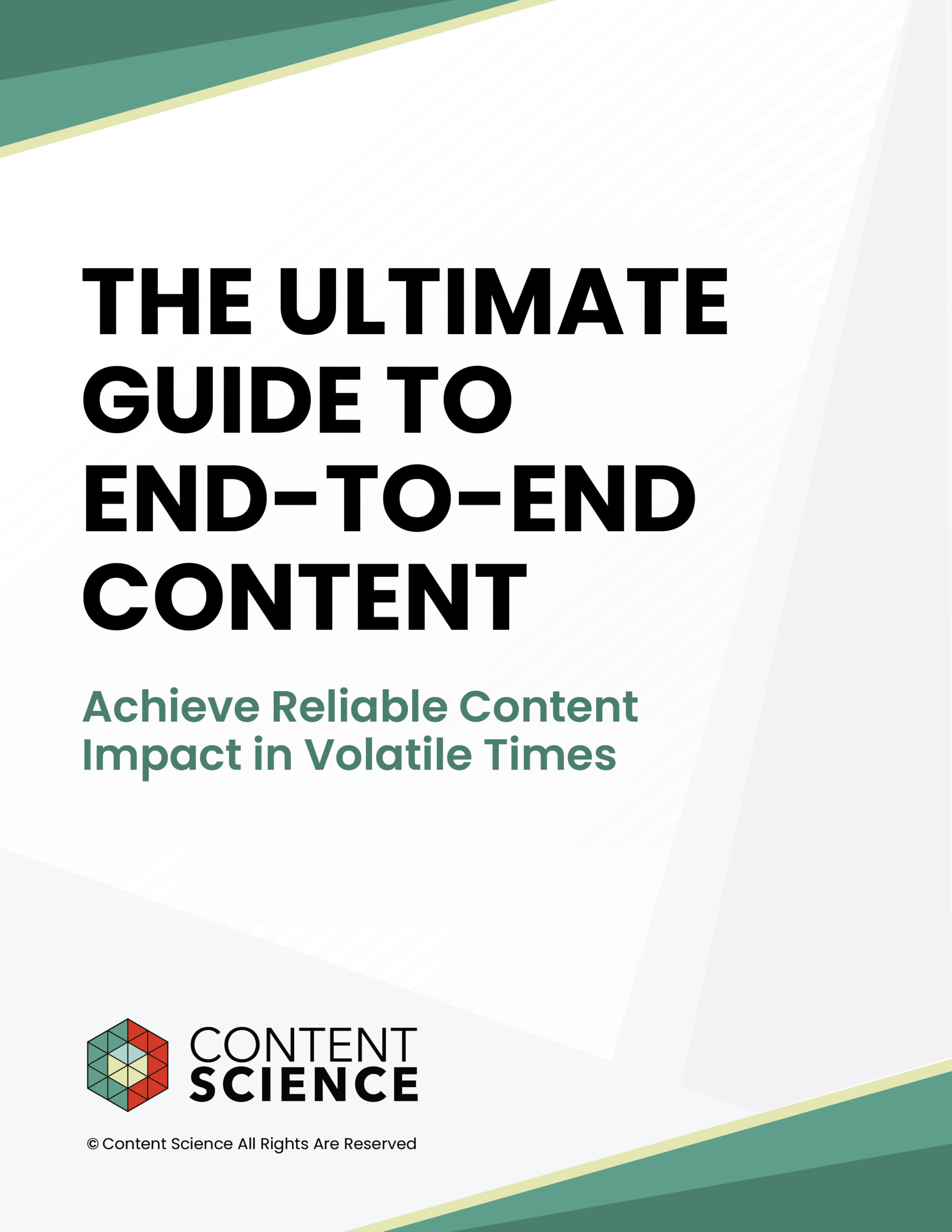
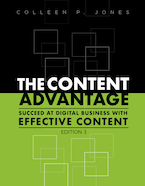
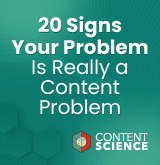

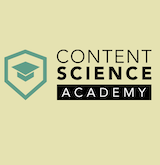
Comments
We invite you to share your perspective in a constructive way. To comment, please sign in or register. Our moderating team will review all comments and may edit them for clarity. Our team also may delete comments that are off-topic or disrespectful. All postings become the property of
Content Science Review.